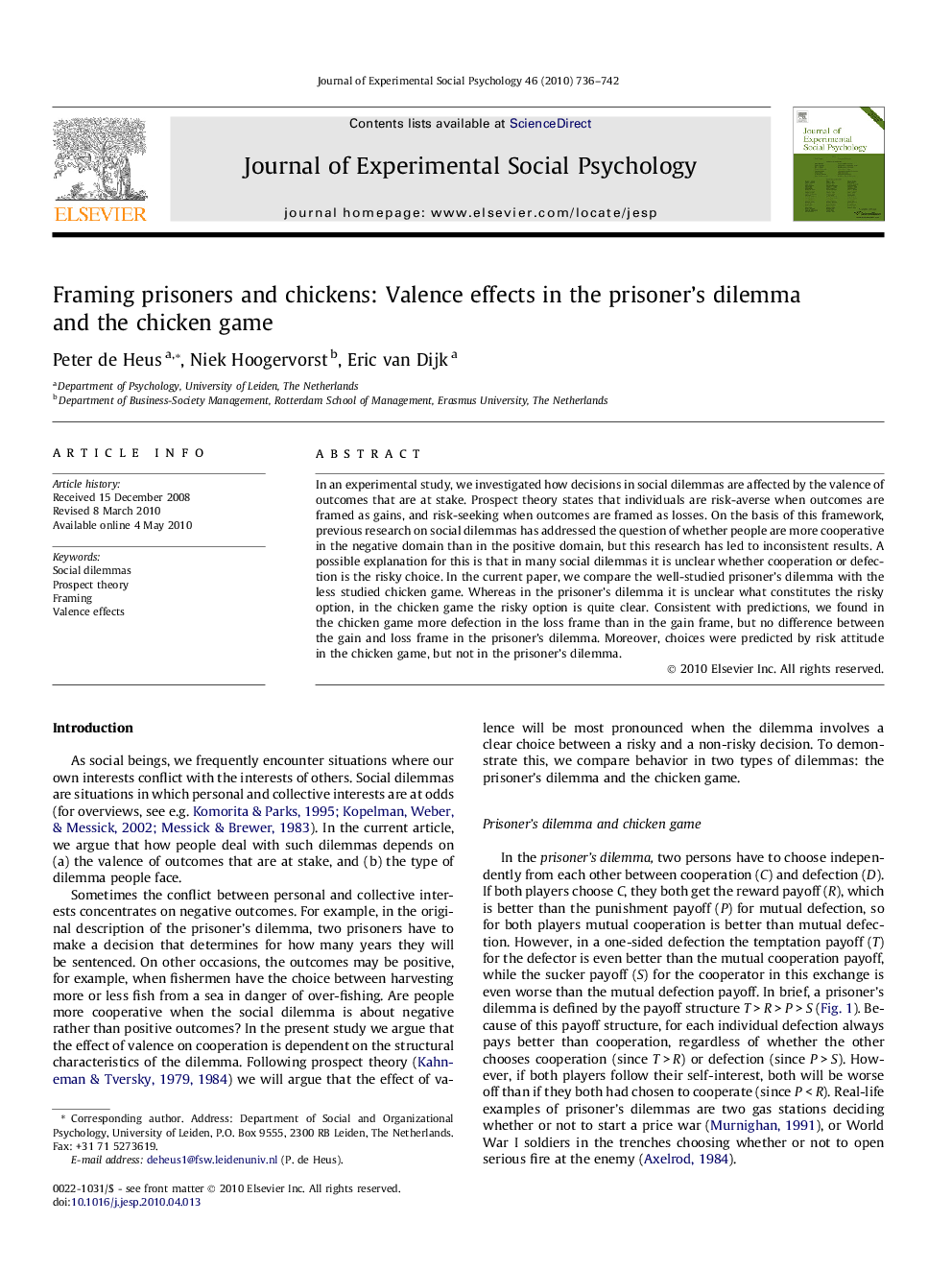| Article ID | Journal | Published Year | Pages | File Type |
|---|---|---|---|---|
| 948648 | Journal of Experimental Social Psychology | 2010 | 7 Pages |
In an experimental study, we investigated how decisions in social dilemmas are affected by the valence of outcomes that are at stake. Prospect theory states that individuals are risk-averse when outcomes are framed as gains, and risk-seeking when outcomes are framed as losses. On the basis of this framework, previous research on social dilemmas has addressed the question of whether people are more cooperative in the negative domain than in the positive domain, but this research has led to inconsistent results. A possible explanation for this is that in many social dilemmas it is unclear whether cooperation or defection is the risky choice. In the current paper, we compare the well-studied prisoner’s dilemma with the less studied chicken game. Whereas in the prisoner’s dilemma it is unclear what constitutes the risky option, in the chicken game the risky option is quite clear. Consistent with predictions, we found in the chicken game more defection in the loss frame than in the gain frame, but no difference between the gain and loss frame in the prisoner’s dilemma. Moreover, choices were predicted by risk attitude in the chicken game, but not in the prisoner’s dilemma.
